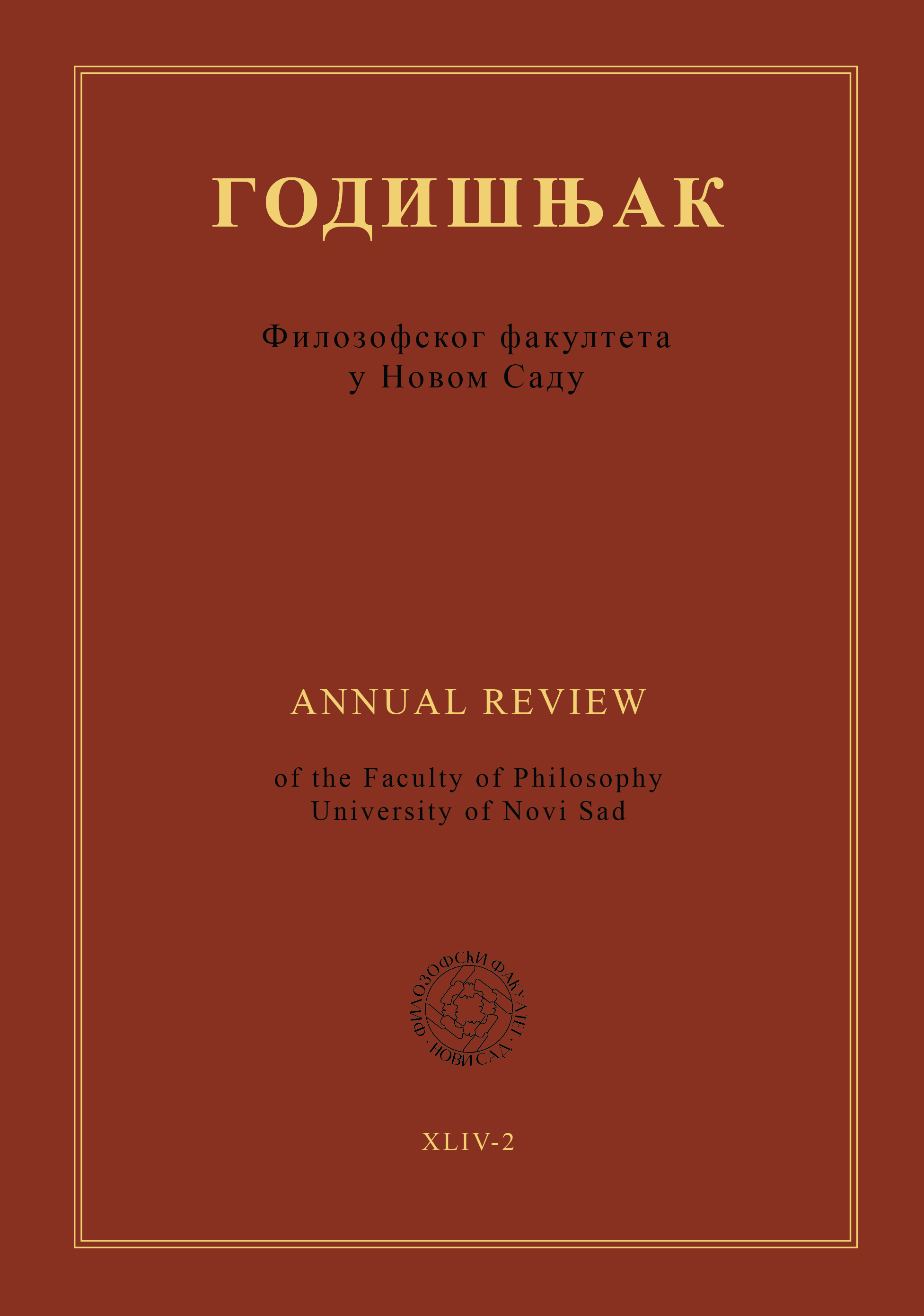NIETZSCHE’S PHILOSOPHY AND THE EXPERIENCE OF THE FOREIGN: DIONYSOS AND TROUBADOUR ON ARTISTIC ORIGIN OF THE SCIENTIFIC SPIRIT
Main Article Content
Abstract
Nietzsche’s experience of the foreign is based on the absolution from his own individuality, made possible by means of excessive self-immersion into one representation. In his philosophy, contact with a foreign explicitly identified with artistic pleasure, which assumes a complete unification with the illusion. Along with Zaratustra, the examples of illusion, originating in the foreign world, and with which Nietzsche identified himself, undoubtedly are Dionysos, tragic man and provencal troubadour. Dionysos’ name stands for a specific conceptual figure which helped Nietzsche an almost theatrical interplay between his characters, stage the continuing contemporary need for transgression, to abandon the established and stable in search of the unestablished and unstable. One of the inevitable strange alternative therapies Nietzsche's concept of joyfullness to confront »«European nihilism«. Paradoxically, one of the greatest criticism of optimism inroduces joyfulness as a decisive mark of the learned. When a medieval troubadour becomes a free spirit, the legacy of the past merges with what is yet to come, it becomes one with the key therapist of the future. The author concludes that the combination of the historical and the fictional in Nietzsche’s philosophy creates a puzzle whose solution seems more appealing and promising than anything else we have experienced and became aware of thus far.
Downloads
Article Details
References
Bohrer, Karl Heinz, (2015) Das Erscheinen des Dionysos. Antike Mythologie und moderne Metapher, Suhrkamp, Berlin.
de Staël, Madame, (1789) Lettres sur les ouvrages et le caractère de J. J. Rousseau, [S. l. : s. n.].
de Staël, Madame, (1846) De l’Allemagne (1810-1814) II-11, Œuvres complètes, Paris, éd. Didot.
de Staël, Madame, (2000) Selected Correspondance, ed. G. Solovieff/K. Jameson-Cemper, Springer, Dodrecht.
Đurić, Mihajlo, (1992) Putevi ka Ničeu. Prilozi filozofiji budućnosti, SKZ, Beograd.
Frank, Manfred (1989) Kaltes Herz. Unendliche Fahrt. Neue Mythologie. Motiv – Untersuchungen zur Pathogenese der Moderne, Suhrkamp, Frankfurt am/M.
Gusdorf, Georges, (1982) Le romantisme I. Le savoir romantique, Payot-Rivage, Paris.
Helderlin, Fridrih (1990) »Sedam maksima«, Nacrti iz poetike, Svetovi, Novi Sad, prev. J. Aćin.
Jaspers, Karl, (1950) Nietzsche. Einführung in das Verständnis seines Philosophierens, Walter de Gruyter, Berlin.
Mueller, Fernand-Lucien, (1970) »Nietzsche ou le retour de Dionysos«, u: L’irrationalisme contemporain, Payot, Paris.
Nietzsche, Friedrich, (1979) Homer und klassische Philologie, u: Werke III, Ullstein, Frankfurt am M./Berlin/Wien 1979, Hg. K. Schlechta. (Delimično korigovani srpski prevod u: Spisi o grčkoj književnosti i filozofiji, IKZS, Sremski Karlovci/Novi Sad 1998, prev. T. Bekić).
Nietzsche, Friedrich, (1980) Nachgelassene Fragmente 1871, Kritische Gesamtausgabe Band 7, Deutscher Taschenbuch & W. De Gruyter, München⁄Berlin.
Nietzsche, Fridrich, (1980) Nachgelassene Fragmente, 1888, Kritische Gesamtausgabe Band 13, Deutscher Taschenbuch & W. De Gruyter, München⁄Berlin 1980, Hg. G. Colli⁄M. Montinari.
Niče, Fridrih, (1991) Knjiga o filozofu, Moderna, Beograd, prev. J. Aćin.
Niče, Fridrih, (2017) Antihrist. Prokleto hrišćanstvo § 41, Službeni glasnik, Beograd 2017, prev. J. Aćin.
Prole, Dragan, (2013) Unutrašnje inostranstvo. Filozofska refleksija romantizma, IKZS, Sremski Karlovci/Novi Sad.
Schwab, Gustav, (1974) Die schönsten Sagen des klassischen Altertums, Loewes Verlag, Bayreuth.




